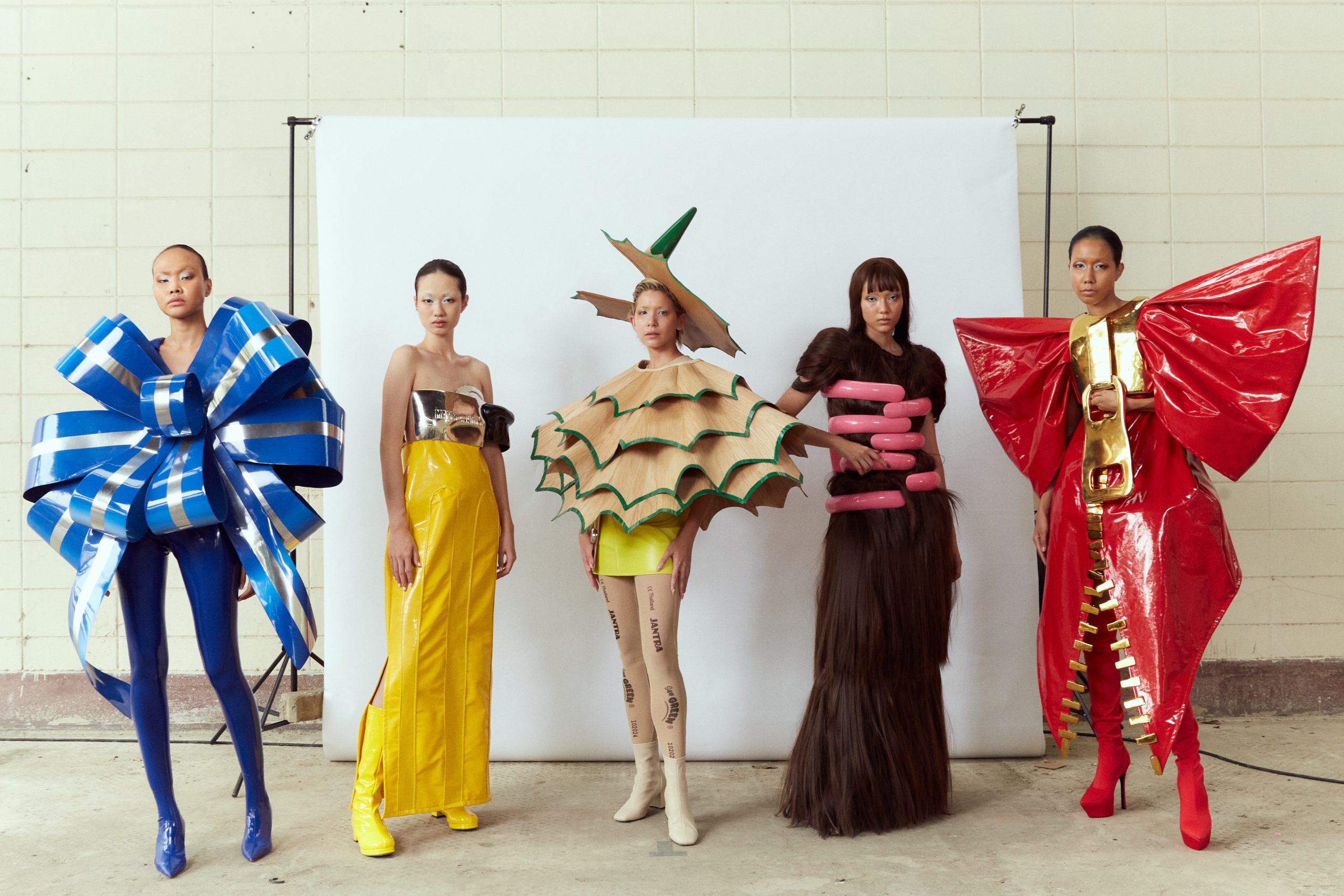In Conversation With Jebin Johnny
“I had an idea. I implemented it. I turned my idea into actions. I am the change. And if I can do it. You can do it.”
Jebin Johnny has always had a dancing passion for the arts, whether it be acting or artwork. In conversation with GLITCH, he jokes coyly of how his first fascinations with fashion stemmed from a love to dress up, to warrant attention, and undeniably his teenage ploy to impress the girls in school. But this youthful love developed into something much more profound and directed when he began his studies, and in particular his MA in fashion and design, which pushed him right through the airport and boarded him onto his first flight to the UK. His successful application to be one of the NEWGEN emerging talents at London Fashion Week only armed his plight with money and funding, and he was able to launch his namesake brand Jebsispar in 2015.
Jebsispar, named in homage to the man behind the scenes – Jebin Johnny – as well as his sisters, and his parents, is cemented solidly in honouring family and roots. Johnny lyrically explicated to GLITCH how his whole psychological reckoning of personal being is rooted in his concept of family, in his locality and in his personal experience of growth. It was this unique authenticity of self that he wanted to transpire through his clothing and branding. The name, which comedically began as his spontaneous email handle, aims to express the unconditional love and understanding he feels for his family, and delineate what connects him to the world and being. Johnny doesn’t shy away from the fact that his business venture was no nonchalant feat, and being the first business owner in his family was something that at times skewed his confidence. All said, he had a passion to story tell, and a passion to concoct images and beauty, and this led him to formulate a brand, which is hailed today by film stars such as Sonam Kapoor.
Yet, it wasn’t without experiential growth and mistake making that Jebsispar came to be the sustainable brand it is today. Galvanised from the 500-year-old art form of Kuthampully weaving, and focused on empowering workers across Southern India who were previously maltreated, Jebsispar is re-scripting the rules of modern fashion. Johnny isn’t sheepish in admitting that despite learning about fashion industry disparity and the ugly truths of the production chain in the classroom, he had to see the real-life conditions of garment workers with his naked eye to appreciate the realness of the situation. Jebsispar was by no means a spontaneous creation, as a business man and academic who had studied in such fields, Johnny aimed at creating a profitable clothing line, and the aim was financial sustenance. However, it was only after returning to India and visiting the very factory workers intrinsic to his line and vision, that he began to initiate radical change, and puzzle together a new way of working.
Johnny explained to GLITCH how his first trip back to the Indian factories left him bitter; whilst his creations were making him money, they were barely facilitating the everyday living conditions of the garment makers behind the scissors, the needles, and the machines. He grappled with the arrant unfairness of it all and knew deeply that this cycle wasn’t something he would be a facilitator in. He knew an alternative was needed. Shortly after, having expressed his grievances and the Catch 22 of his success to anyone who would listen, he was introduced to a group of weavers from his home locality. The weavers used the traditional hand loom and natural hand-picked cotton fibres to craft artisan clothing that was produced slowly. The more he integrated with this community, the more he began to learn about the simplistic clues to sustainability and the beauty of rebalancing ourselves back to basics.
“I would never say that we are 100% sustainable. No brand nor industry is 100% sustainable. But, we are working every single day to learn more, and implement more sustainable practices”
“I myself walk to the couriers’ office with my finished products in hand to ship to the customers—it is about small changes”
Kuthampully weaving had been intrinsic to the textiles Johnny grew up with, the textiles that shaped his childhood, that were both multipurpose and durable, and that were made by neighbours and family. This process of making was a craft and a pride, not a wasteful occupation encouraged by Western money and greedy franchise owners. Peculiarly, only now could he realise the sustainability of his upbringing, only once he had moved away from it and rushed into the metropolis lifestyle that had once cluttered his dreams. He now realised the potential of this ancient craft that was not new nor groundbreaking, and had always been at his fingertips. Immersing himself in this artisanal community, he began to understand the beauty of its particularity and the crucial role it would play in curing his brand of its fast fashion tendencies. His pieces, decorated in the hand printed patterns of his story, every 6 metres of fabric taking 1 whole day to assemble, have taken on a new-found speciality with gratitude to the team and processes that have made them. The brand sources natural cotton from the nearby city of Erode in Tamil Nadu, and once the weave is made from the starch, the material is hand sewn by the company’s tailors – Bindhu, Valsala and Mary—in a sewing unit run by the local Catholic nuns. All the workers earn a fair living wage, with Johnny tells us they mostly reinvest into their children’s education. He explains how in the state of Kerala, is home region, education is of the utmost importance and the people pride themselves in being a 100% literate state.
“The smiling faces of our tailors when they see their clothes worn by celebrities across the world at international events can only be described as a heavenly sight. One of pure joy”.
Jebin Johnny proclaims himself a “climate warrior” and has held a strong tone when advising and negotiating over the current state of our planet. Advocating for small piecemeal change from person to person, he believes strongly that a forceful accumulative effect is the most streamlined solution to the chaos we see unfolding. Having been exposed to grisly truths in his brand building process, Johnny has since refused to buy any new items of clothing over the latter 4 years and tries to adhere to a minimal plastic lifestyle. Whilst the fashion industry’s damming role is intrinsic in accelerating planetary damage, Johnny reflects that no industry can be truly sustainable, and no process of creation can be traceless. Albeit, he remains excitedly optimistic about what the next 10 years will bring. He champions small and simplistic action as the non-negotiable footing of real change. Across the next decade hopefully, our grasp and decipherment of truly sustainable practice will be advanced by technology and education, but it will ultimately always boil down to a human choice, and a will to act in one direction or another.
“We CAN solve the climate crisis, all we need is a will to act”
Written by Hebe Street from GLITCH Magazine





